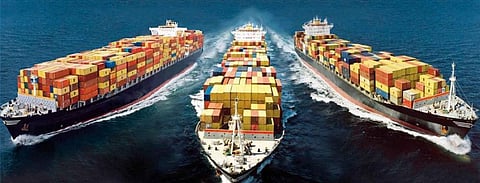

Non-tariff measures (NTMs) have increased in the past two decades and are affecting trade as well sustainable development goals (SDGs) in Asian countries, according to a new report released on October 14.
The Asia-Pacific Trade and Investment Report 2019 was published by the United Nations Economic and Social Commission for Asia and the Pacific (ESCAP) and the United Nations Conference on Trade and Development (UNCTAD).
NTMs affect 58 per cent of the trade in Asia-Pacific, the report stated.
NTMs allude to technical measures such as sanitary (for protection of human and animal health), and phytosanitary (for protection of plant health), or SPS, and Technical Barriers to Trade (TBT), which are related to environmental and sustainable standards that are set to block or slow down trade instead of regular tariffs or duties.
NTMs can have a direct impact on the performance of trading partners. In addition, they can also impact issues such as health, safety, environment, climate, public security and peace, which in turn, influence SDGs.
In countries of the Asia-Pacific, almost 50 per cent of NTMs directly address SDGs. The report analysed that around half the Asia-Pacific’s economies have at least one NTM addressing water and energy efficiency and only 10 per cent have measures addressing illegal, unreported and unregulated (IUU) fishing and illegal timber trade.
“There appears to be more scope for member states in the Asia-Pacific region to address these aspects of sustainable development through trade measures,” the report stated.
But NTMs are quite complex and vary from country to country.
The report cited the example of Sri Lanka. The South Asian country earned a lot revenue by exporting seafood. But then, the European Union (EU) instituted an import ban on Sri Lankan seafood because of the country’s systematic failure to regulate IUU fishing. This was a type of NTM.
On the one hand, the ban helped in conservation of marine resources and encouraged sustainable fishing. At the same time though, fisherfolk in Sri Lanka became poor.
The ban led domestic prices to plummet, which in turn, translated into a decrease in fishing.
The implementation of NTMs raises the cost of trade, especially in developing economies. The average cost of these measures alone amounts to 1.6 per cent of gross domestic product, roughly $1.4 trillion globally.
The developed economies have a higher standard of NTMs which affects trade of developing economies. In case of Sri Lanka, the country would have needed to invest too much to follow EU standards on IUU.
Thus, the cost of investment in NTMs can sometimes be higher than the cost of total trade. This makes NTMs burdensome.
A middle ground
However, the report also notes that such costs assure protection of human health or the environment. They can even boost trade under certain conditions.
“While trade costs associated with NTMs are estimated to be more than double that of tariffs, NTMs often serve important public policy objectives linked to sustainable development,” United Nations Under-Secretary General and Executive Secretary of ESCAP Armida Alisjahbana said.
“The key is to ensure they are designed and implemented effectively so that costs are minimised,” she added.
The report also found that NTMs affected foreign direct investment negatively, which slowed countries’ economic activities.
However, NTMs cannot be seen in isolation for analysing slowdown in trade, the report says. Domestic procedural obstacles, rather than required standards embedded in NTMs are the primary reason behind the negative impacts of NTM on trade.
The report points out that major trade costs stem from the adoption of SPS and TBT of international standards. Developing economies find these divergent from those listed in the World Trade Organization SPS agreement.
Hence, developing economies lack the necessary quality infrastructure to regulate these. It makes developing countries unwilling to adopt such standards.
The report highlighted the need to build capacity in developing economies to adapt, coordinate or harmonise the use of international standards.
The report called for increasing cooperation with developed economies to work out regional mechanisms and developing common guidelines on sustainability impact assessment of NTMs.
“To address trade costs while maintaining the benefits of NTMs, countries need to further enhance cooperation at all levels,” UNCTAD Secretary-General Mukhisa Kituyi said.
“Regional initiatives should be actively pursued, such as NTM harmonisation and mutual recognition initiatives in regional trade agreements,” he added.
It also recommended reviewing current NTMs and ensuring that new NTMs are systematically follows and monitored. The report said the implementation of NTMs in the right spirit can help in achieving SDGs.